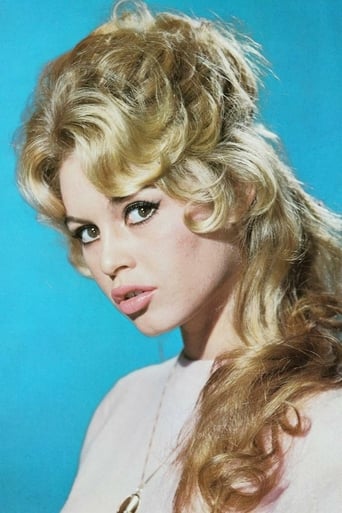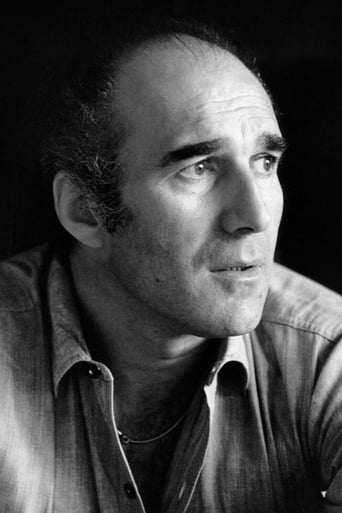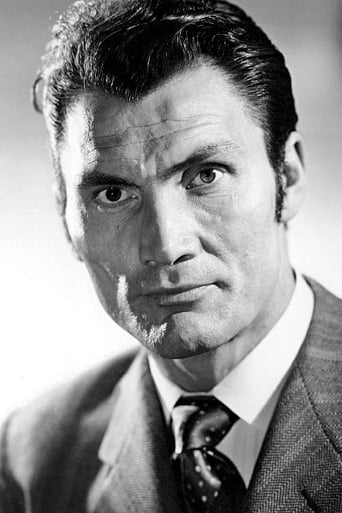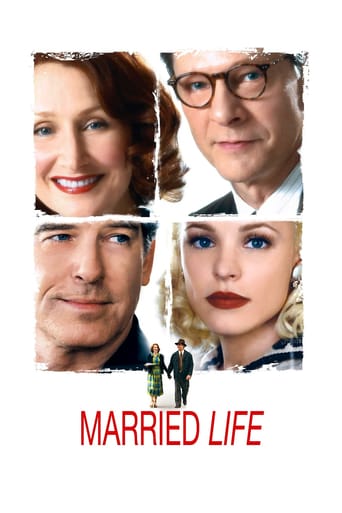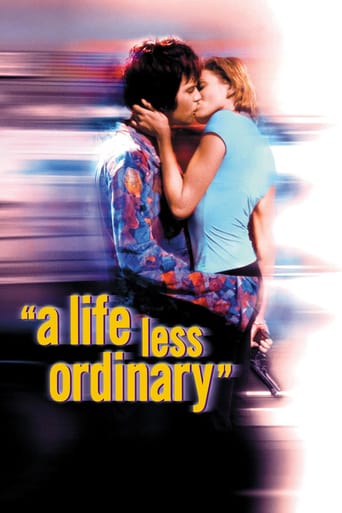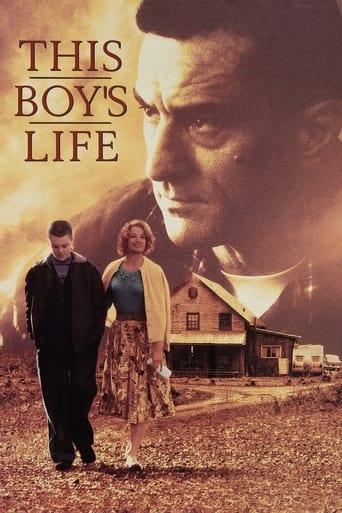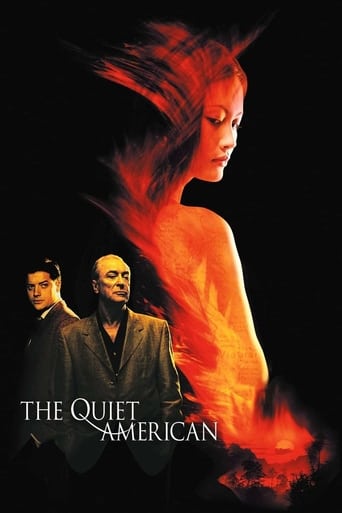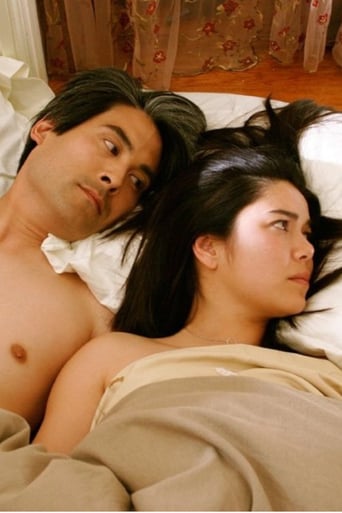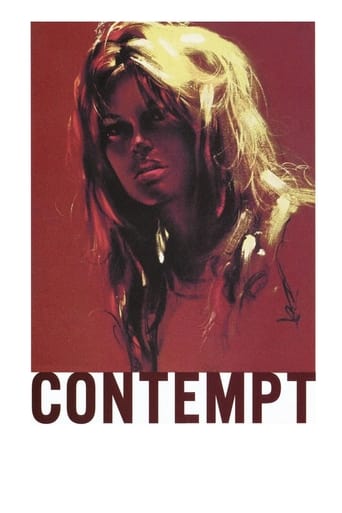
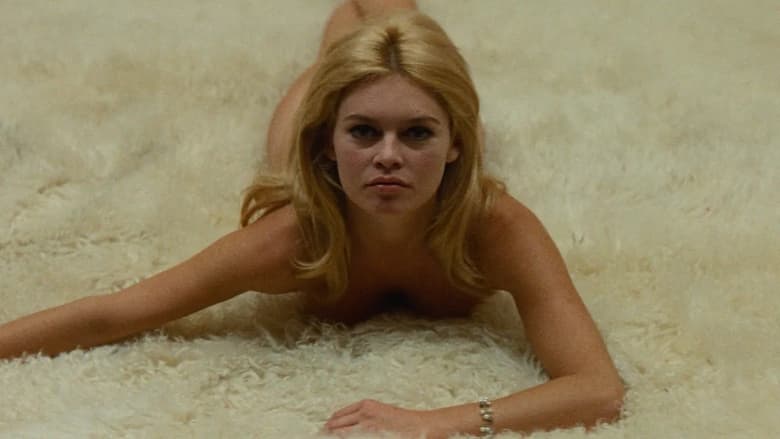
Contempt (1964)
A philistine in the art film business, Jeremy Prokosch is a producer unhappy with the work of his director. Prokosch has hired Fritz Lang to direct an adaptation of "The Odyssey," but when it seems that the legendary filmmaker is making a picture destined to bomb at the box office, he brings in a screenwriter to energize the script. The professional intersects with the personal when a rift develops between the writer and his wife.
Watch Trailer
Cast
Similar titles
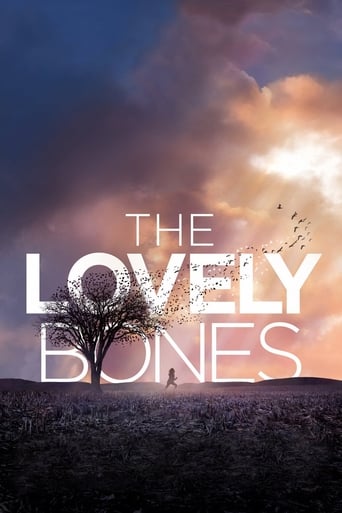
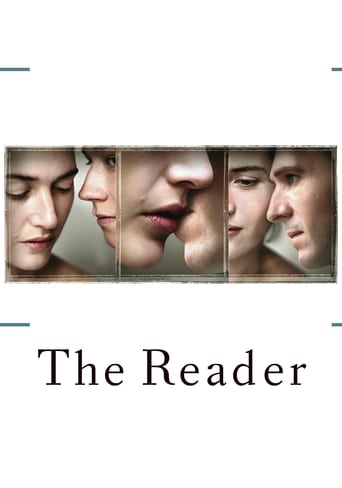
Reviews
Wow! Such a good movie.
Very very predictable, including the post credit scene !!!
It's no definitive masterpiece but it's damn close.
Brilliant and touching
Definitively I go on affirming that I don't understand why Godard is reckoned by critics in general one of the greatest movie directors ever and particularly this movie as one of the best ever made. This film is the usual old story with supposedly deep and almost meaningless dialogues and hollow meaningless scenes almost totally unprovided with the dramatic vibration which should be suited to the story that is (or seems to be) behind. Everything is around a film that is being made based on Homer's Odyssey without a clear explanation about what it has to do with the rest I mean the real life of the characters, their tendencies and conflicts. The dialogue scenes between husband and wife (Piccoli and Bardot) are particularly long, dull and psychologically confusing. And as usual in Godard's movies it ends abruptly without any significative outcome despite the tragic happening at the end. In this movie things happen one after another, characters go on talking here and there and that's all. But as I have said many times before concerning Godard's movies,the fault must be mine.
Jean-Luc Godard's "Contempt" opens with a low-angle shot from a stationary camera. From this vantage point we watch as another camera tilts downward and gazes back at us. "Cinema substitutes for the real world one that accords more closely with our desires," Godard states. The relationship of the moving camera to the stationary camera is significant; it occupies a position of power and authority. We kneel before it."Contempt's" second sequence finds Camille (Brigitte Bardot) and Paul (Michel Piccoli) in bed. They're lovers. He's a playwright. She informs him that she will "visit her mother tomorrow," a detail which will later become significant. Throughout the scene, Camille is nude, but her anatomical listing of parts, which she asks Paul to "look at in the mirror", neutralises all eroticism. Godard uses red, blue and white filters throughout the scene – the colours of the French national flag – and has Cameille ask Paul if he would like her to keel before him. He says no. He loves her totally, not her reflection, not just as individual fetishized parts, but totally. She frowns, wanting Paul to love something that cannot be located in any part of the body, something which resists and exists beyond his image of her.Next scene: the Italian film industry is in ruins and finds itself prey to wealthy Hollywood producers, one of whom is Prokosch (Jack Palance), a man busy producing movies and turning Italian studios into shopping malls. Prokosch hires Fritz Lang (playing himself) to direct a film adaptation of Homer's Odyssey and wants Paul to write a "commercial" screenplay. Paul agrees.Throughout the film, Godard presents language and economics as forces which prevent the articulation and actualisation of human desire. Everyone seems to be speaking a different language, and everyone struggles with translation and interpretation. Epitoimizing these differences are Lang, Prokosch and Paul. One speaks German, one French, one English. Each interprets Homer's Odyssey differently and each wishes to turn their subjective interpretations of artifacts/objects into private fantasy. Prokosch, a misogynist who believes Penelope (who epitomises fidelity) was unfaithful to Odysseus, wins. Alligned with Gods, and possibly named after the Prokosch family of linguists, he's able to force his will, his language, upon others. Lang, meanwhile, represents the old guard: an artist with integrity and values on the cusp of being replaced. Paul's the modern artist, a whore bent by market demands; his fate is still being written.If Paul is a future prostitute, Camille already is. We find her standing between film posters ("Vivre sa Vie", "Psycho", "Hatari", "Betrayer") which feature hunters, psychos and sex workers, the latter her symbolic role. Prokosch wants her, may have already had her when she "visited her mother", but Paul seems oblivious. He repeatedly "offers her" to Prokosch, whilst also selling his soul for money. Paul is aligned to Vincente Minnelli's "Some Came Running", a melodrama about a writer who struggles to hold on to his integrity. Lang's character is in a similar trap. He quotes a Bertolt Brecht line ("Every morning to earn my bread...") which likens scriptwriting to prostitution, but symbolically attributes the line to BB, the nickname of Brigitte Bardot. Prokosch, meanwhile, quotes Joseph Goebbels ("When I hear the word culture..."), Godard likening producers to Nazis.Like mice lost in a maze, Paul and Camille navigate their apartment. He thinks she's been abused by Prokosch, she thinks he slept with Prokosch's assistant. Both are unsure of the other's fidelity. More importantly, neither has a sense of what the other really wants, and both are unable to bring desire into tangible existence through language. This is the crux of the film: one can never fully articulate desire with language as there is always what Lacan called "surplus desire", that which exists beyond both articulation and satiation. And as "Contempt" shows, it is the attempt to fill the emptiness of one's desire with an actual object that destroys romance, though this is precisely what cinema typically offers its spectators. What Godard proposes in a number of his films is to resist resolving desire, embrace the troubled position of the desiring subject – and in so doing sustain some semblance of freedom - and recognise the inability of the filmic image to deliver this object.Early in the film, Camille tells a story about control. The moral? Gods used to control man's fate, now money reigns supreme; Smith's Invisible Hand has replaced God's ("I know how God's feel!" Prokosch remarks). Money itself results in Paul being trapped in an interesting double-bind. Paul succumbs to Prokosch's offers - compromising his artistic integrity and also his beliefs in communism - so that he has enough cash to pay for an apartment for he and Camille. But it is precisely Paul's betraying of his values to be with Camille which fills her with further contempt for him. In other words, he wanting to be with her pushes her away from him; he shatters his ideals and so her idealisations of him. Conversely, Camille tears herself away from Paul and embarks on a romance with Prokosch, not solely out of contempt, but also out of love for Paul. In leaving him, she saves him from debasement, allowing him to escape Prokosch."Contempt" ends with a reversal of its first shot. Here a camera tracks Ulysses as he looks for Ithaca, an island which Godard symbolically leaves invisible. The film is powerfully scored by Georges Delerue (lifted by Scorsese for "Casino"), and resembles late Antonioni, Resnais and early Rossellini.Incidentally, Lynch's "Mulholland Drive" is a big homage to "Contempt". Lynch has Godard make a cameo as a director in "Mulholland", ends with "Contempt's" final panning shot and command ("Silenzio!"), has a character called Camilla (whose portfolio is "Contempt's" poster), and his film features the same wigs (now blonde), red towels, sleazy producers, car crashes and fights against gods. Elsewhere Lynch's Club Silencio resembles a casting-call in "Contempt", both with lip-syncing.8.9/10 - Masterpiece.
I hate Godard. I think that he's cold and pretentious and relies too often on technique and shock value to see his films through. Sometimes this works out well. Sometimes it doesn't. I am probably the only cinephile on the planet to think that Breathless was a steaming pile of crap, although I found both Alphaville and Masculin Feminin satisfyingly artistic and absurd. This one isn't bad either, and, apparently, unlike Godard's contemporaries, I found that Cinemascope suits his style very well. If this is selling out, I'm all for it.I was quite pleased to see Brigitte Bardot as I've always enjoyed her work. Other points of interest include the long panoramic shots of the Capri landscape and that really lovely string movement which kicks in about the same time. I'm not much of a fan of Jack Palance, but I was impressed that he was able to portray such a thoroughly unlikeable character so well. Fritz Lang was mildly annoying as the put-upon film director, and his character seem to exist solely of advancing the entirely wrongheaded notion that the director is the true and only auteur, and producers and writers and script-girls and cinematographers are all roadblocks between the director and his Art.One reviewer mentioned that this film is "difficult". It is not difficult. Good films shouldn't be difficult, they should be enjoyable. Symbolism, and imagery in particular, should exist to facilitate understanding of the themes, not to merely propel the work into highbrow territory. I found the symbolism in this film to be both clear and effective, and was therefore never confused. This is art film done right.
There are some films that can't really be contained into a simple paragraph and mere words can't express what they're really all about. In a word, I thought "Contempt" was marvelous. In several words, it was also beautiful and heartbreaking. This is a film that I really wanted to like and usually when I want to like something, I don't. This time I more than liked what I wanted to like, but rather, I loved it! Let's cover the basics and then we'll get into some of the more symbolic elements and some of my interpretations. The acting is fine, with Palance being a surprisingly good fit and a really great pair of finds in Michel Piccoli and Brigitte Bardot. They had great chemistry together, even though their characters, for the most part, lacked chemistry. And what about that music? It was almost tear inducing. There were times throughout the picture when it would strike up and I'd wonder if I was supposed to be feeling something at that moment. It was such a powerful score and it was played throughout A LOT of the movie. Played too much, perhaps? Well, it was just so good, that I can't bring myself to say that, but it's possible I guess.So, anyway, Camille is mad at Paul for not protesting when Jerry offered to take her alone in the car. Jerry was obviously hot for Camille and his reasoning for wanting to be alone with her was absolute poppycock, "Oh Paul, you surely won't be comfortable stuffed into the backseat, why don't you take a cab", to which Paul replied, "Oh sure Jerry, I'll just take a cab". Come on dude, you're wife is a gorgeous blonde and this arrogant, confident, good-looking man, whom you can't understand, is going to take her alone and all you can say is, "sure, why not". Now, on the other hand, does Camille's eventual backlash due to Paul's decision warrant such drastic measures? I mean, it's later revealed, when Paul recounts his interpretation of Homer's Odyssey, that he really did it because he had faith in his wife. He knew she wouldn't cheat on him, so he didn't have any problem allowing her to go alone with Jerry. It's a situation that I can see both points of view on, so therefore, the film works for me, because their arguments always seem genuine. I can see both sides, so all of the questions from Paul and all of the actions from Camille make, at least, some sense.I have to say I was pretty proud of myself for picking up on the correlation between Paul, Camille & Jerry and Ulysses, Penelope & Poseidon. Of course, it's all laid out for you, so it's not as if you've had to have read The Odyssey. I also (and I'm not lying) picked up on Bardot's resemblance to Anna Karina (Godard's real life wife) when she donned the black wig. In fact, even from there I made the assumption that Camille dying in the end was Godard's way of saying, "Take that bitch!". I can already tell that Godard didn't have a very high opinion of women and that, for the most, part he thought them to act very childish and stubborn and possibly had great disdain for them or maybe just one in particular. Obviously here, Godard takes the side of Paul, playing down his actions and heightening the complaints and absurd behavior of Camille and then killing her for being so bull-headed. You can also look at the camera shots, specifically those from the entire scene in the apartment, when the two are at the height of their argument. Godard isn't constantly forcing us into the situation, but, for the most part, allowing us to peer through doorways, as if we're peering in on a real-life disagreement - possibly his way of saying, "it's more than a movie folks, it's my life - take a look".Godard also seemed to be trying to say something, in the fact that you had Paul, a playwright who could form interpretations of Homer's writings and understand quotes about Dante, but couldn't interpret his own wife's emotions. Perhaps he's trying to say that women are impossible to understand?I had a deep desire to understand every facet of this film. While I'm sure I didn't understand EVERY FACET, I think I swallowed it very well and understood the majority of it. This blow's "Breathless" and "My Life to Live" out of the water. I just finished and I can say, I honestly can't wait to see it again and try to fit more of the puzzle pieces into place.
